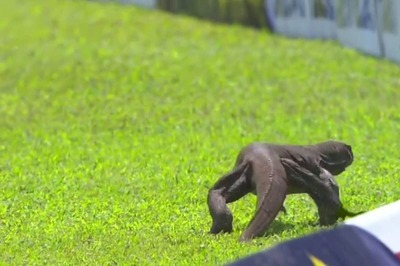
views
An epidemic-prone, mosquito-borne disease that is prevalent in many parts of India, it is a viral disease which is transmitted to humans by infected mosquitoes – including Aedes aegypti and Aedes albopictus. Symptoms of Chikungunya appear between 4 and 7 days after the patient has been bitten by the infected mosquito and include, among other things, fever and joint pain. Other symptoms that a person may show include headache, muscle pain, joint swelling, or rash.
Traditional risk zones for Chikungunya include Africa, Asia, parts of Central and South Amercia, inslands in the Indian Ocean, Western and South Pacific, and Caribbean. While Chikungunya is rarely fatal, with symptoms generally being self-limiting and lasting for 2–3 days only, prolonged polyarthritis may lead to considerable discomfort in the affected population, according to an article written by Dr P Venkata Krishnan, Internal Medicine, Paras Hospital, Gurgaon for Indian Express.
According to Dr Venkata Krishnan, two key pointers to remember while traveling to high Chikungunya-prone areas is that there is no vaccine or medicine to prevent chikungunya and the only way is to prevent mosquito bites. The doctor cites the emergence of Aedes albopictus as a more efficient vector, besides Aedes aegypti, for the transmission of the disease to be one of the main reasons for the resurgence of chikungunya in and around the Indian sub-continent.
While preventing the bites of mosquitoes can be difficult, the doctor lists a series of steps to reduce chances of being bitten by chikungunya carrying mosquitoes.
These include applying sunscreen first and insect repellent after that when travelling to Chikungunya probe areas. Furthermore, following package directions when applying repellent on children is also important. One should avoid applying repellent to their hands, eyes, and mouth. Another important point is to wear long-sleeved shirts, long pants and hats to cover exposed skin as well as using an appropriate insect repellent as directed. The doctor also advised the use of permethrin-treated clothing and gear (such as boots, pants, socks, and tents) since they remain protective even after multiple washings. Staying and sleep in screened or air-conditioned rooms as well as using a mosquito net if the area where one is sleeping is exposed to the outdoors are other advice meted out by the doctor.
However, if a person still gets diagnosed with Chikungunya, they should not worry as symptoms are generally self-limiting and only last for 2-3 days. On diagnosis, the doctor recommended that tender coconut water is a good choice that helps detoxify the body, while keeping one hydrated. The doctor further advises that one should have green, leafy vegetables because they are low in calories but high in vitamins and other minerals. A light lentil broth or soup is good due to their protein content while the water in the dal helps in keeping the body hydrated. Foods rich in vitamin c, such as oranges, kiwis and guavas, are a must during chikungunya not only because their help bring back appetite but are known for improving immunity.



















Comments
0 comment